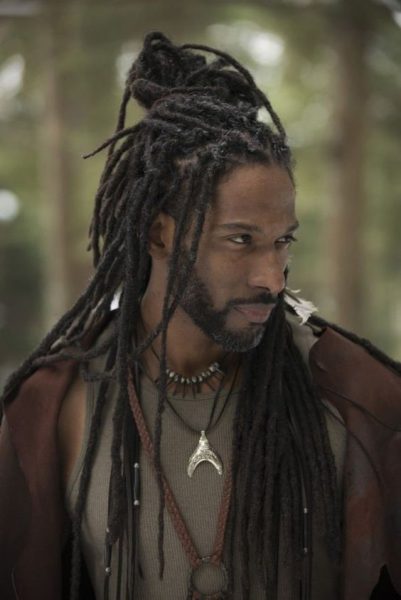
Dreadlocks have been around for thousands of years. Although dreads are not religious, people wear locks to express their religious beliefs. For this reason, many people look for the answer to the question, “What does the Bible say about dreadlocks?”
Although you will not find many things about dreadlocks in the Bible, it doesn’t state whether you should wear them or not. This means the Bible doesn’t specifically address dreadlocks.
In this guide, we will look into the verses of the Bible about Dreadlocks. Continue reading the guide to learn more.
What Does the Bible Say about Dreadlocks
In the Bible, dreadlocks are mentioned a few times. Most remarkably, in Judges 16, it is found that Samson had 7 locks. As a man, Samson had taken the Nazarite vow. His dreads showed dedication and commitment to the Lord.
Nazarite vows are temporary sanctification performed by both men and women. This way, their 100% dedication and commitment are shown to God. You will find a verse on the Vow in Number 6.
The verse states that razors must not touch their head on the days of the Nazarite vow. Also, the locks should be free to grow longer. Many believe that the Nazarite vow abstained from cutting or shaving their hair and brushing them. As a result, their strands get formed into dreadlocks. In order to complete the vow, hairs are cut, and a sacrifice is brought to the temple.
10 Bible Verses about Dreadlocks
Here you will find 10 Bible verses about Dreadlocks.
Ezekiel 44:20 ESV
“They shall not shave their heads or let their locks grow long; they shall surely trim the hair of their heads”.
Proverbs 21:1-31 ESV
“The king’s heart is a stream of water in the hand of the Lord; he turns it wherever he will. Every way of a man is right in his own eyes, but the Lord weighs the heart. To do righteousness and justice is more acceptable to the Lord than sacrifice. Haughty eyes and a proud heart, the lamp of the wicked, are sin. The plans of the diligent lead surely to abundance, but everyone who is hasty comes only to poverty”.
Judges 16:13 ESV
“Then Delilah said to Samson, “Until now you have mocked me and told me lies. Tell me how you might be bound.” And he said to her, “If you weave the seven locks of my head with the web and fasten it tight with the pin, then I shall become weak and be like any other man”.
Judges 16:13
“Then Delilah said to Samson, “Until now you have mocked me and told me lies. Tell me how you might be bound.” And he said to her, “If you weave the seven locks of my head with the web and fasten it tight with the pin, then I shall become weak and be like any other man”.
Numbers 6:1-27
“And the Lord spoke to Moses, saying, “Speak to the people of Israel and say to them, when either a man or a woman makes a special vow, the vow of a Nazirite, to separate himself to the Lord, he shall separate himself from wine and strong drink. He shall drink no vinegar made from wine or strong drink and shall not drink any juice of grapes or eat grapes, fresh or dried. All the days of his separation he shall eat nothing that is produced by the grapevine, not even the seeds or the skins. “All the days of his vow of separation, no razor shall touch his head. Until the time is completed for which he separates himself to the Lord, he shall be holy. He shall let the locks of hair of his head grow long”.
Song of Solomon 5:11
“His head is like gold, pure gold;
His locs are like clusters of dates
And black as a raven”.
Judges 16:13
“Then Delilah said to Samson, “Up to now you have deceived me and told me lies; tell me how you may be bound.” And he said to her, “If you weave the seven locks of my hair with the web [and fasten it with a pin, then I will become weak and be like any other man”.
Peter 4:1-19
“Since therefore Christ suffered in the flesh, arm yourselves with the same way of thinking, for whoever has suffered in the flesh has ceased from sin, so as to live for the rest of the time in the flesh no longer for human passions but for the will of God. For the time that is past suffices for doing what the Gentiles want to do, living in sensuality, passions, drunkenness, orgies, drinking parties, and lawless idolatry. With respect to this they are surprised when you do not join them in the same flood of debauchery, and they malign you; but they will give account to him who is ready to judge the living and the dead”.
Samuel 18:9
“Now Absalom happened to meet the servants of David. For Absalom was riding on his mule, and the mule went under the thick branches of a great oak. And his head caught fast in the oak, so he was left hanging between heaven and earth, while the mule that was under him kept going”.
Ezekiel 8:3s
“And he put forth the form of a hand, and took me by a lock of mine head; and the spirit lifted me up between the earth and the heaven, and brought me in the visions of God to Jerusalem, to the door of the inner gate that looketh toward the north; where was the seat of the image of jealousy, which provoketh to jealousy”.
Who is Samson, and why are his dreadlocks relevant?
We are all aware that Samson was a man who considered dreadlocks as his strength and power. But the history is long and more profound. When discussing Samson’s locks, we only hear of Delilah and Samson. However, this is a history of one chapter among 5 different chapters.
Samson was a Nazarite. The word Nazarite comes from the Hebrew word “Nazir,” which means “separated” or “stay apart.”
Nazarite vow forbids haircuts and allows “locks” to grow. You will find this in the Bible or Chapter 6 Verses 5. Also, several different translations are available in the “Biblegateway” for cross-reference.
Frequently Asked Questions
Dreadlocks, also called “locs” or “dreads,” are matted, knotted hairstyles. Dreadlocks may be worn for cultural, religious, or personal reasons. Religious writings like the Bible may help individuals understand this hairdo. Here are some often asked questions about dreadlocks in the Bible:
Is there any reference to dreadlocks in the Bible?
The Bible does describe a comparable haircut in the context of the Nazirite vow, which required not cutting one’s hair. However, the term “dreadlocks” as we know it today is not specifically referenced in the Bible.
What is the Nazirite vow, and what does it have to do with dreadlocks?
The Nazirite vow is mentioned in the Bible (Numbers 6:1-21). It was a vow of devotion to God, often taken freely for a set amount of time. One component of this vow was to refrain from cutting one’s hair for the term of the vow, which could result in dreadlocks.
Did any biblical characters have dreadlocks as a result of the Nazirite vow?
Yes, biblical people are thought to have had dreadlock-like hair as a result of the Nazirite vow. Samson (Judges 13-16) is a well-known example. His strength was linked to his uncut hair, a Nazirite promise feature.
Is having dreadlocks a sin according to the Bible?
The Bible does not specifically mention dreadlocks as a sin. The setting and intention of wearing dreadlocks are critical considerations. It is generally not considered a sin if one’s motivation accords with religious beliefs or cultural customs and does not violate scriptural teachings.
Are there any biblical texts about long or uncut hair?
Yes, the Nazirite vow (Numbers 6:5) and the narrative of Samson, who had uncut hair (Judges 13-16), both mention long hair in the Bible. In 1 Corinthians 11:14-15, the apostle Paul addresses the topic of hair length and gender-appropriate hairstyles.
Is it culturally or spiritually significant to have dreadlocks in specific contexts?
Yes, dreadlocks have cultural or religious significance for some people and societies. It can reflect a link to certain beliefs, customs, or identities. Rastafarians, for example, see dreadlocks as a symbol of their faith and a relationship with God.
Is it necessary to observe cultural and religious traditions when wearing dreadlocks?
Yes, while considering wearing dreadlocks, it is critical to respect and comprehend their cultural and religious significance. Cultural practices that are appropriate or misunderstood can be disrespectful and offensive. To increase understanding and sensitivity, it is critical to engage in discourse and educate oneself.
Respect, understanding, and open-mindedness are required while discussing dreadlocks and their significance in diverse cultures and religions. Interpretations may differ depending on cultural, religious, and personal views.
Wrap Up
People wear dreads according to their personal preference. Some wear locks to express personality, identity, and ethnic pride.
Hopefully, you got enough information on the question “What does the Bible say about dreadlocks.” Every person’s journey is different. Wear dreads without hesitation.

Leave a Reply